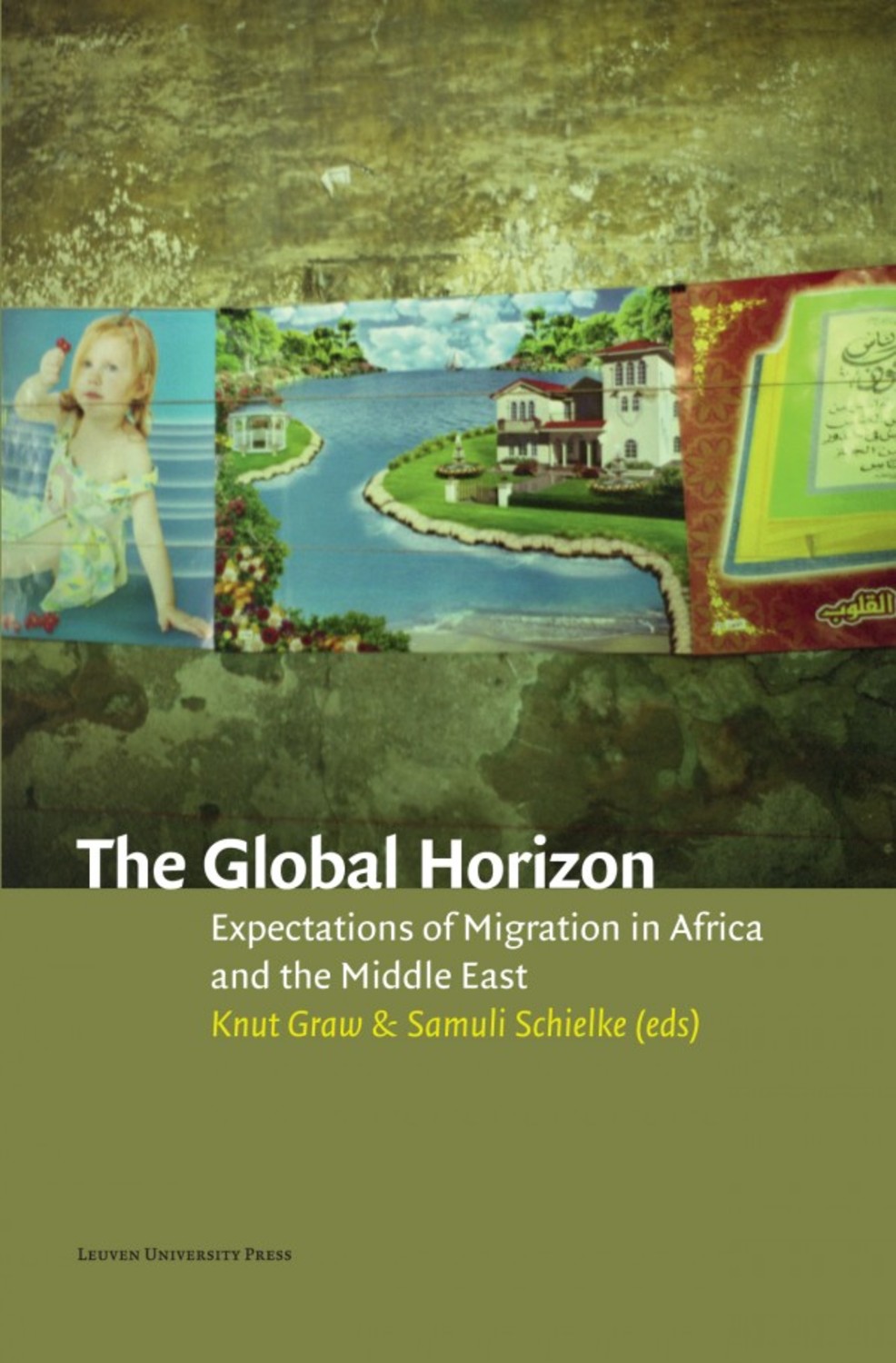
The Global Horizon
Expectations of Migration in Africa and the Middle East
Edited by Knut Graw and Samuli Schielke
Regular price
€39.50
(including 6% VAT)
Sale
Edited volume - paperback
VIEW Edited volume - free ebook - PDFImaginations, expectations, and motivations that propel the pursuit of migration
Although contemporary migration in and from Africa can be understood as a continuation of earlier forms of interregional and international migration, current processes of migration seem to have taken on a new quality. This volume argues that one of the main reasons for this is the fact that local worlds are increasingly measured against a set of possibilities whose referents are global, not local. Due to this globalization of the personal and societal horizons of possibilities in Africa and elsewhere, in many contexts migration gains an almost inevitable attraction while, at the same time, actual migration becomes increasingly restricted.
Based on detailed ethnographic accounts, the contributors to this volume focus on the imaginations, expectations, and motivations that propel the pursuit of migration. Decentring the focus of much of migration studies on the ‘receiving societies', the volume foregrounds the subjective aspect of migration and explores the impact which the imagination and practice of migration have on the sociocultural conditions of the various local settings concerned.This publication is GPRC-labeled (Guaranteed Peer-Reviewed Content).
Introduction: Reflections on migratory expectations in Africa and beyond
Knut Graw and Samuli Schielke
Why migrate?
On the cause of migration:Being and nothingness in the African-European border zone
Knut Graw
Bushfalling: The making of migratory expectations in Anglophone Cameroon
Maybritt Jill Alpes
Departures and non-departures
City on the move: How urban dwellers in Central Africa manage the siren's call of migration
Filip De Boeck
Spaces in movement: Town-village interconnections in West Africa Denise Dias Barros
Migration, identity and immobility in a Malian Soninke village Gunvor Jonsson
"God's time is the best": Religious imagination and the wait for emigration in The Gambia
Paolo Gaibazzi
Horizons in the making
The Eiffel Tower and the eye: Actualizing modernity between Paris and Ghana
Ann Cassiman
Literacy, locality, and mobility: Writing practices and 'cultural extraversion' in rural Mali
Aissatou Mbodj-Pouye
Engaging the world on the Alexandria waterfront
Samuli Schielke
Afterword
Michael Jackson
Contributors
Format: Edited volume - paperback
Size: 240 × 160 × 10 mm
199 pages
ISBN: 9789058679062
Publication: December 11, 2012
Languages: English
Stock item number: 68006
Knut Graw is lecturer at the University of Leuven and associated researcher at Zentrum Moderner Orient, Berlin. His current research focuses on ritual praxis and migration in Senegal, Gambia, and Spain.
Samuli Schielke is a research fellow at Zentrum Moderner Orient, Berlin. His research focuses on morality, religiosity, and aspiration in Egypt.
The focus here is on the deep existential dilemmas of migration; how young people at great peril to their lives set out to take part in a globalized world that reaches them only in the form of 'absence' or as Knut Graw argues, as a 'non-arrival of change' (p. 33). [...] At the heart of many African migration journeys, even the high-risk forms that we see today in the Mediterranean and in the Sahara Desert, lies a continues struggle for a life worth living that is in a constant flux between local and global, between tradition and modernity, between what one has been given and what one must achieve in order to make the world one's own. In this excellent book, the dilemmas are given ethnographic context and challenge what we know about African migration.
Hans Lucht, Ethnos, 2015 (pp. 1-;2), http://dx.doi.org/10.1080/00141844.2015.1069366
As a whole, the book is beautifully written and produced. It is a significant contribution to migration studies, in situating international migration within the context of other migration circuits, emphasizing the impossibility of
calculating losses and gains beforehand, and examining how 'The Global Horizon' becomes significant material for personal repositories, struggles, and imaginaries.
Cati Coe Rutgers University, Journal of the Royal Anthropological Institute (JRAI) Issue 20:4
